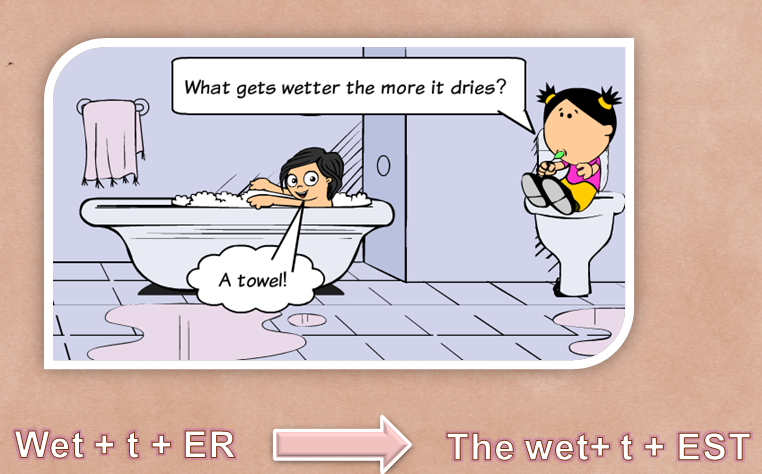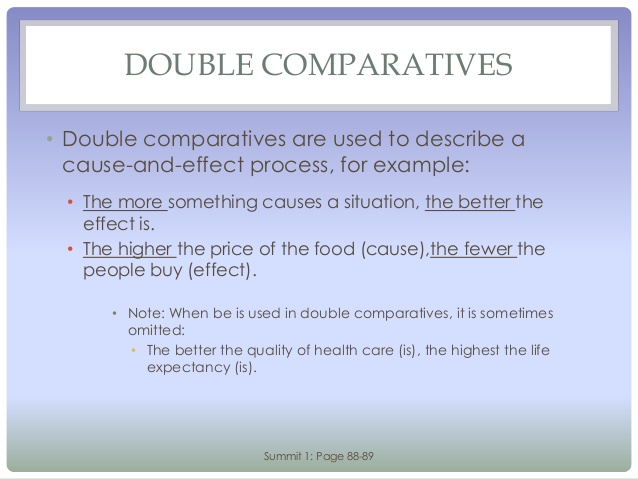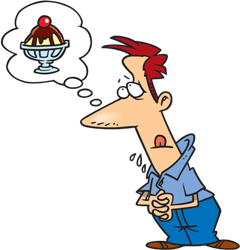Repeated and Double Comparatives
En inglés existen los llamados repeated comparatives o comparativos repetidos. Se trata de una estructura que usamos para indicar que algo está cambiando (aumentando o disminuyendo). Veamos cómo se forman.
AUMENTO
Se usan dos estructuras para indicar que algo aumenta: .... er and ..... er y more and more ..... que suelen aparecer con los verbos get y become.

1) ... er and ....er (cada vez más / más y más)
Se utiliza con los adjetivos / adverbios cortos que ya explicamos en el post adjetivos comparativos. Añadimos -er al adjetivo para formar el adjetivo comparativo, a continuación la conjunción and y después, repetimos de nuevo el adjetivo comparativo → bigger and bigger, fatter and fatter, faster and faster
I'm getting older and older (cada vez me hago más mayor, me hago más y más mayor)
Laptops are becoming cheaper and cheaper (los portátiles son cada vez más baratos, los portátiles se están volviendo más y más baratos)
We are getting closer and closer (cada vez estamos más cerca)
2) more and more .... (cada vez más / más y más)
Esta estructura se utiliza con:
Adjetivos largos o con adverbios. Basta con escribir more and more y añadir a continuación el adjetivo o el adverbio → more and more beautiful, more and more exciting
The situation is becoming more and more difficult (la situación cada vez se hace más difícil)
Smartphones are getting more and more expensive (los teléfonos inteligentes son cada vez más caros)
We are going more and more slowly (cada vez vamos más lentos).
Sustantivos (tanto contables como incontables). Basta con escribir more and more y añadir a continuación el sustantivo → more and more books, more and more children
(contable) More and more children use tablets in schools (cada vez son más los niños que usan tablets en el colegio)
(incontable) We waste more and more money on things we don't need (cada día gastamos más dinero en cosas que no necesitamos)

DESCENSO
Para indicar que algo disminuye podemos usar las estructuras: less and less.... y fewer and fewer...
1) less and less... (cada vez menos, menos y menos)
Se utiliza con adjetivos y sustantivos incontables. Basta con añadir el adjetivo o sustantivo incontable tras la expresión less and less.
As you get older, you become less and less flexible (a medida que te haces mayor, te vuelves menos y menos flexible / a medida que te haces mayor, pierdes flexibilidad)
She needs less and less money everyday (ella cada día necesita menos dinero)
I have less and less time to cook (cada vez tengo menos tiempo para cocinar)
También podemos usarlo con verbos como dice la canción de Kaiser Chiefs: Everyday I love you less and less (cada día te quiero menos)
2) fewer and fewer... (cada vez menos, menos y menos)
Se utiliza con sustantivos contables.
Fewer and fewer people get married now (cada vez se casa menos gente en la actualidad)
There are fewer and fewer fish in the sea (cada vez hay menos peces en el mar)


Reescribe las siguientes frases sin alterar su significado. Recuerda poner mayúscula sólo cuando corresponda y no escribir el punto final de frase en la caja.
1.- The coffee was so hot I couldn’t drink it.
The coffee was .
2.- Jake works less than Peter.
Peter .
3.- She is such a good singer that everybody wants to see her.
The singer .
4.- Have you got any cheaper shoes than these?
Are these ?
5.- All his classmates study harder than him.
He doesn't .
6.- Her anger is increasing.
She is getting .
7.- Raspberries and blackberries are more expensive than strawberries.
Strawberries .
8.- I have never known such an interesting person.
He is .
9.- I am older than Mike.
Mike .
10 .-My children are too young to vote.
My children .
11.- It was the worst film I have ever seen.
I have never seen .
12.- She isn’t as intelligent as her sister.
Her sister .
13.- I have never seen such a boring show.
It's .
14.- Swimming is better than walking.
Walking isn't .
15.- English isn’t as difficult to learn as Chinese.
Chinese .
The coffee was .
2.- Jake works less than Peter.
Peter .
3.- She is such a good singer that everybody wants to see her.
The singer .
4.- Have you got any cheaper shoes than these?
Are these ?
5.- All his classmates study harder than him.
He doesn't .
6.- Her anger is increasing.
She is getting .
7.- Raspberries and blackberries are more expensive than strawberries.
Strawberries .
8.- I have never known such an interesting person.
He is .
9.- I am older than Mike.
Mike .
10 .-My children are too young to vote.
My children .
11.- It was the worst film I have ever seen.
I have never seen .
12.- She isn’t as intelligent as her sister.
Her sister .
13.- I have never seen such a boring show.
It's .
14.- Swimming is better than walking.
Walking isn't .
15.- English isn’t as difficult to learn as Chinese.
Chinese .




